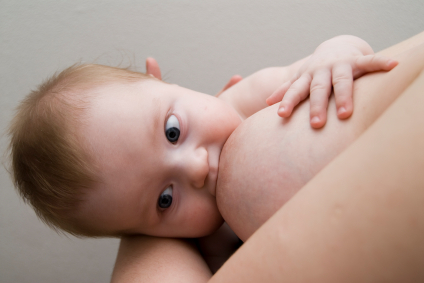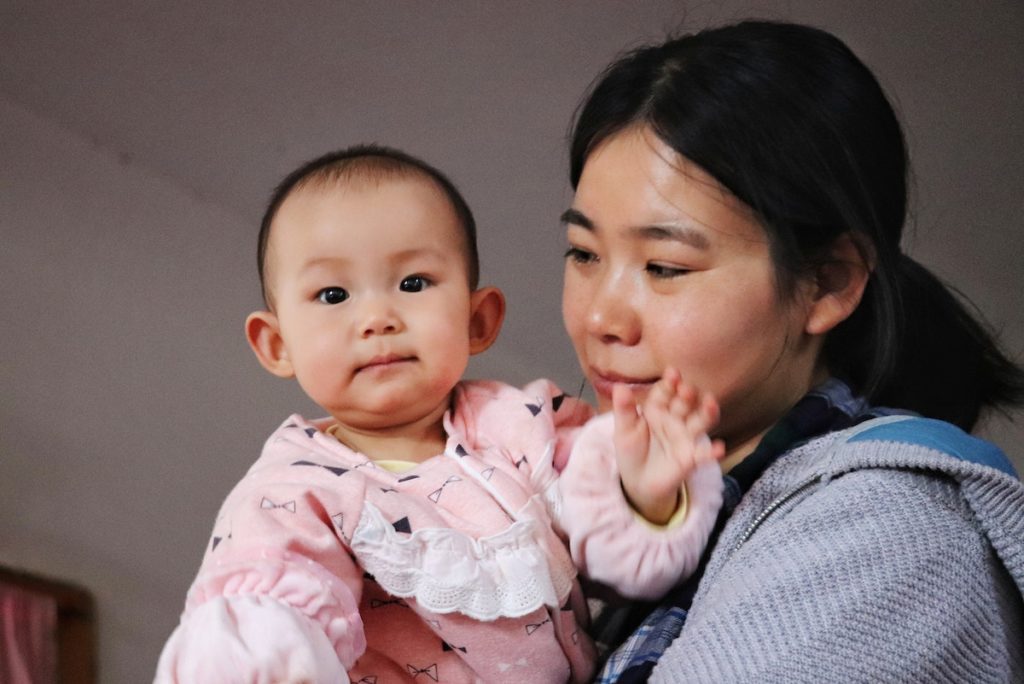
Exclusive breastfeeding in the first 6 months of life could save 820,000 infants lives each year worldwide (World Health Organisation, 2018).
Postpartum anxiety (PPA) is linked to poorer outcomes in infants, specifically that mothers with PPA are less likely to exclusively breastfeed and are more likely to stop breastfeeding earlier than recommended (Fallon et al, 2016).
Studies suggest that general measures of anxiety and depression are not as effective at predicting postpartum outcomes, compared to PPA specific measures (Meades and Ayers, 2011).
This study (Fallon et al, 2018) aimed to test if the Postpartum-specific Anxiety Scale (PSAS) is more effective and accurate at predicting infant-feeding outcomes compared to general measures.

Can the Postpartum-specific Anxiety Scale (PSAS) scores predict if optimal breastfeeding will be achieved?
Methods
The study used a short-term online prospective design. At baseline, 800 mothers completed general measures of depression and anxiety and the PSAS. Two weeks later, 261 mothers completed the ‘Baby Eating Behaviour Questionnaire’ (BEBQ; Llewellyn et al, 2011). Statistical analyses were carried out between PSAS scores, general measure scores and BEBQ items.
Results
Where was the PSAS a better predictor?
- The PSAS significantly predicted ‘exclusive breastfeeding’ and ‘breastfeeding in any amount’. The higher the PSAS score (indicating higher levels of PPA symptoms), the lower total incidence of exclusive breastfeeding and breastfeeding in any quantity during the first 6 months postpartum.
- The PSAS significantly predicted the infant’s perceived ‘enjoyment of food’. The higher the PSAS score, the less likely it was to the mother, that the infant appeared to like their milk or feeding in general.
- The PSAS significantly predicted the infant’s perceived ‘food responsiveness’. The higher the PSAS score, the more demanding the mother felt the infant appeared to be about being fed.
- The PSAS significantly predicted ‘satiety responsiveness’. The higher the PSAS score, the more likely the mother falsely perceived her infant to be full during a feed.
Where were the general measures better predictors?
- Nowhere.
Where was the PSAS or the general measures not good at predicting?
- The PSAS could not significantly predict ‘slowness in eating’ or the general appetite of the infant.
- Although general measures of anxiety and depression explained some of the differences, they were not significant predictors for any of the infant-feeding outcomes and behaviours, apart from one.

Mothers with lower PSAS scores were more likely to provide optimal breastfeeding.
Conclusions
The study concludes that the PSAS was a robust predictor of infant-feeding outcomes and behaviours and is a more effective predictor than the more frequently used general measures of anxiety and depression. Furthermore, the PSAS is a strong predictor of exclusive breastfeeding or breastfeeding in any quantity.
Strengths and limitations
The PSAS is a valid predictor, even after controlling for general anxiety and depression. This indicates that PPA provokes a specific novel effect on infant-feeding, highlighting the importance of using specific perinatal measures of mood when predicting infant health outcomes.
However, the PSAS was not an effective predictor of general appetite or slowness in eating. This could imply that these two domains are too broad or that they do not provoke the same emotive maternal response. Furthermore, although the PSAS was a significant predictor, it only described a small amount of the variance of the BEBQ item outcomes.
The online convenience sample used lacked sampling control, which resulted in an unvaried sample, limiting the generalisability of the findings to the wider PPA population. Furthermore 67% of the original sample did not choose to complete the follow-up BEBQ. The participants lost to follow-up, could have altered the results and conclusions of the study.

The PSAS indicates that postpartum anxiety can provoke a unique effect on infant feeding.
Implications for practice
The robust predictive nature of the PSAS suggests it should be used in practice instead of general measures of mood, when supporting women during the postpartum period. Furthermore, it should be used in conjunction with the BEBQ to predict and support specific infant-feeding interventions. Together, both measures can help services identify mothers with higher levels of postpartum anxiety (PPA) symptoms and highlight the specific areas of infant-feeding that they need support with.
This information can help formulate person-centred care programs for mothers with PPA, in order to reduce the emotional difficulties brought by PPA, improve maternal feeding perceptions of the infant and provide education on the health benefits of optimal breastfeeding in order to holistically improve infant-feeding outcomes and behaviours.
Further research should aim to replicate these findings of the PSAS, over a longer time period with more follow up time points over the exclusive breastfeeding period and with a more diverse sample of women. Furthermore, other specific measures of postpartum mood should be studied, to see if they also hold predictive qualities of infant health outcomes, specifically those that have inconsistent results when using general measures.
I know that when I am a mother, I would value a measure that could identify if I have postpartum anxiety and recognise the areas that I would need support, in order to improve my infant’s feeding outcomes.

Specific measures of postpartum mood should be used to predict infant and maternal health outcomes.
Conflicts of interest
I declare, I have no conflicts of interest.
King’s MSc in Mental Health Studies
This blog has been written by a student on the Mental Health Studies MSc at King’s College London. A full list of blogs by King’s MSc students from can be found here, and you can follow the Mental Health Studies MSc team on Twitter.
We regularly publish blogs written by individual students or groups of students studying at universities that subscribe to the National Elf Service. Contact us if you’d like to find out more about how this could work for your university.
Links
Primary paper
Fallon, V., Grovenor Halford, J.C., Bennett, K.M., & Harrold, J.A. (2018). Postpartum-specific anxiety as a predictor of infant-feeding outcomes and perceptions of infant-feeding behaviours: new evidence for childbearing specific measures of mood. Archives of Women’s Mental Health, 21, (2), 181–191.
Other references
Fallon, V., Groves, R., Grovenor Halford, J. C., Bennett, K. M., & Harrold, J. A. (2016). Postpartum Anxiety and Infant-Feeding Outcomes: A Systematic Review. Journal of Human Lactation, 32, (4), 740–758.
Llewellyn, C.H., van Jaarsveld, C.H., Johnson, L., Carnell, S., Wardle, J. (2011) Development and factor structure of the Baby Eating Behaviour Questionnaire in the Gemini birth cohort. Appetite, 57, (2), 388–396.
Meades, R., & Ayers, S. (2011) Anxiety measures validated in perinatal populations: A systematic review. Journal of Affective Disorders, 133, (1–2) 1–15.
WHO. (2018) Infant and young child feeding. World Health Organization, 16 Feb 2018.
Photo credits
- Photo by Chayene Rafaela on Unsplash
- Estella Fisher and Mark Fisher CC BY 2.0
- Jane Jane CC BY 2.0
- Photo by Brytny.com on Unsplash
- Photo by Taiying Lu on Unsplash

You are fabulous Melisa,
Congratulations and well done for your work.
Informative and engaging. Excellent blog post!